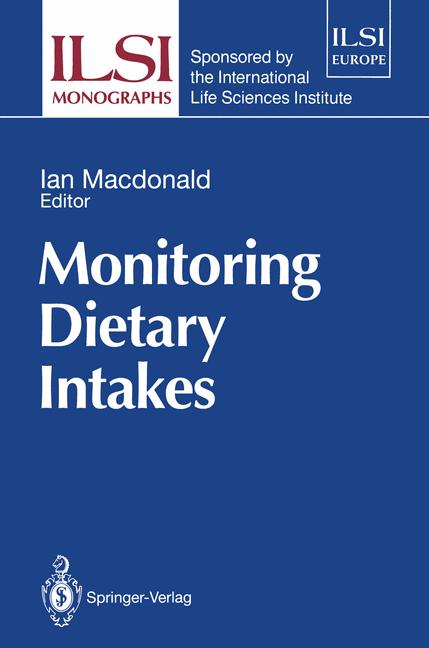(To see other currencies, click on price)
MORE ABOUT THIS BOOK
Main description:
The International Life Sciences Institute (ILSI), a nonprofit, public foundation, was established in 1978 to advance the sciences of nutrition, toxicology, and food safety. ILSI promotes the resolution of health and safety issues in these areas by sponsoring research, conferences, publications, and educational programs. Through ILSI's programs, scientists from government, academia, and industry unite their efforts to resolve issues of critical importance to the public. As part of its commitment to understanding and resolving health and safety issues, ILSI is pleased to sponsor this series of monographs that consolidates new scientific knowledge, defines research needs, and provides a background for the effective application of scientific advances in toxicology and food safety. Alex Malaspina President International Life Sciences Institute Preface We live in a changing world. The everyday, ongoing changes in people's habits and the availability of foods in the market lead to continuous changes in food con sumption patterns, changes we need to understand since they play an important role in nutrition as well as toxicology. In nutrition, food intake data provide us with the information needed to exam ine whether, on the one hand, these modifications are still within the limits of nutritional safety and, on the other, whether they offer the possibility of monitor ing the evolution of dietary habits. In toxicology, food intake data are used to calculate the potential intake of sub stances used as additives or substances that enter food as contaminants, such as pesticide residues, packaging materials, and radionuclides.
Contents:
I. Methodologies of Dietary Survey: Its Pitfalls.- 1. Methods for Obtaining Food Consumption Information.- 2. The Validity of Total Diet Studies for Assessing Nutrient Intake.- 3. Household Food Intake (Market Basket).- 4. A National Food Survey. Food Balance Sheets and Other Methodologies: A Critical Overview.- 5. Estimating Human Exposure to Food Constituents.- II. Application.- 6. Intake of Heavy Metals: Comparison of Methods.- 7. Risks of Dietary Exposure to Pesticides in Infants and Children.- 8. Use of Intake Data in Risk Assessments by JECFA/JMPR and in Codex Decisions.- 9. The Importance of Within-Person Variability in Estimating Prevalence.- 10. Use of Food Composition Data Banks in Nutrient Intake Studies.- 11. National Surveillance of Food and Contaminant Intake: The Danish Experience.- 12. Experience of GEMS/Food in Co-ordinating Dietary Intake Studies.- III. Actual Intake Versus Potential Intake in Relation to Nutritional and Safety Standards.- 13. Macronutrient Intake in Relation to Nutritional Standards.- 14. The Purchasing Method for the Estimation of Vitamins and Minerals Intake of the Adult.- 15. Food Additive Intake: Estimated Versus Actual.- 16. Pesticide Residues in the United States Diet.- 17. Monitoring Dietary Radiocesium Intake in Sweden After the Chernobyl Accident.- 18. Estimating the Dietary Intake of Veterinary Drug Residues.- 19. Do Actual Intakes Ever Equal Potential Intakes?.- 20. Packaging Materials.- IV. Needs and Prospects of Intake Studies.- 21. WHO International Co-operation in Exposure Studies.- 22. Means of Improving the Comparability of Intake Studies.- 23. Future Trends and Co-operation Concerning Intake Studies.- 24. Dietary Intakes: Summary and Perspectives.
PRODUCT DETAILS
Publisher: Springer (Springer London Ltd)
Publication date: December, 2011
Pages: 259
Weight: 427g
Availability: Available
Subcategories: Biochemistry, Pharmacology
From the same series






